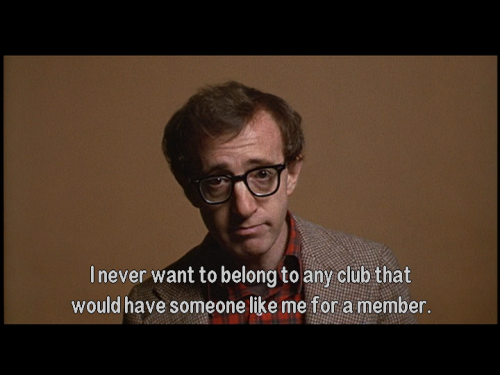A little more than a year ago, someone from Gale Cengage publishing emailed me to ask if I would be willing to allow them to publish a blog post I had written many moons ago, titled “Why DIY Foreign Aid Amateurs Are Necessary.” It was a response I had written to another blog post in Foreign Policy titled “Don’t try this abroad,” which, incidentally, was a response to an article from the New York Times Magazine by Nicholas Kristof titled “The DIY Foreign-Aid Revolution.” The Foreign Policy article was written by Dave Algoso, author of the thought-provoking and prolific development blog, Find What Works, which I highly recommend (warning: it is wonkish). (Interestingly, I later met and hung out with Dave in Nairobi, where we both worked – the development blogosphere is small indeed).
But I digress. Gale-Cengage sent me the following email:
Dear Josh Weinstein:
Plans are now underway for the introductory volume of At Issue: Is Foreign Aid Necessary?, volume 1 (AIFAN-1) scheduled to be released in fourth quarter of 2012. AIFAN-1, with 112 pages, will be published by Gale, a part of Cengage Learning, (www.gale.cengage.com), a provider of high quality educational and reference materials to libraries. We are expecting to produce 2,500 hardcover copies of this reference work to sell at $33.71 and 1,500 paperback copies to sell at $23.85 each.
Books in this anthology series focus a wide range of viewpoints onto a single controversial issue, providing in-depth discussions by leading advocates. This series provides a quick grounding in the issues and a challenge to critical thinking skills. The viewpoints are selected from a wide range of highly respected sources and publications. To help students more easily access the material, we title the articles, insert subheads, omit notes and references, and, if necessary, do some minor editing (for style, to clarify time references and names, etc.; any deletions-usually done because of our length requirements-are indicated with ellipses), and insert an editorial cartoon, graphic, or quotation from another source, which will be identified and set so as to be obviously from another source. We credit the original source on the first page of each article.
We seek your permission for non-exclusive, all-language use for print, online, and e-book in the global market for this edition and for future editions of AIFAN-1, and for incidental promotional pieces. Attached is a Permissions Agreement which identifies the material we wish to use.
Needless to say, I was somewhat shellshocked. What sort of low-rent, bush-league operation would ever in their right mind want to read, let alone publish, the mindless dribble that makes the pages of this blog? I felt a bit like Woody Allen (or Groucho Marx), dismissing the legitimacy of any publication that would publish material written by me.

Regardless, the prospect of being published in a real book that would be read by real people was enticing. I emailed a friend of mine and asked him what the thought. His response:
Obviously let them publish it. It makes your blog seem so much more legit.Typos courtesy of my IPhone.
Hi Nicole,_Here is the final version and the signed release. Please make these final edits and go ahead with the article posting. Apologies for the delay. I will be looking forward to taking a look at the final product. Please let me know if you have any questions._Also, is there is a standard fee that you pay contributors? I was ideally hoping for $100. Please let me know and I will send the permission form as soon as I hear back._– Josh
Until that point, it hadn’t occurred to me that I might actually get paid for something like this. As it stood, I would have been happy to simply have been plagiarized, much less paid for my writing. So I asked for $100, skeptical that they would even oblige me that.
Remember that, by this point, they explicitly told me that they would be selling 2,500 copies at $33.71 and 1,500 at $23.85, which totals $120,050 in revenue for Gale Cengage. Now, I did a little research on gross margins for publishing companies, and the only data I could find said that the publisher earns profits of about 15-20% of the retail price. Using the more conservative estimate – which could be total BS, since I settled on it after 5 minutes of Google searching – the gross profits for the publishing company would be about $18,000. At the time, I hadn’t performed this calculation, which would have made my $100 request equivalent to a modest 0.5% of profits, and 0.08% of revenues. Fortunately, Develop Economies writes for the thrill of it.
To my surprise, the publisher then took mercy on me and actually negotiated up my fee. I received the following email the next day:
Hi Josh,
There isn’t a standard fee, but the average fee is about $200. 🙂_As you will be paid as an individual, not a corporation, the publisher will need a W9 to issue you a check – please find a copy of the brief form attached._I’ll also note that you are to receive a complimentary copy of the book – please be sure to include the address to which it should be sent._Thanks,_Nicole
 Now, I am not sure why she included the smiley face. Perhaps it was because she had forwarded the email around to everyone in her office with the heading “Look at this moronic rube!” That, or she thought she was actually dealing with a child who did not grasp the concept of money. Either way, I was stoked that, despite my terrible negotiating skills, they decided not to take complete advantage of my ignorance. So, thank you Gale Cengage publishing for not completely taking me to the cleaners. Or, if you did take me to the cleaners, then thank you for not telling me and making me feel like a moronic rube.
Now, I am not sure why she included the smiley face. Perhaps it was because she had forwarded the email around to everyone in her office with the heading “Look at this moronic rube!” That, or she thought she was actually dealing with a child who did not grasp the concept of money. Either way, I was stoked that, despite my terrible negotiating skills, they decided not to take complete advantage of my ignorance. So, thank you Gale Cengage publishing for not completely taking me to the cleaners. Or, if you did take me to the cleaners, then thank you for not telling me and making me feel like a moronic rube.Develop Economies Music Recommendations

